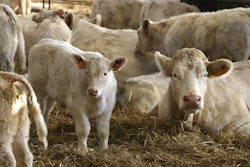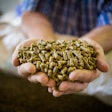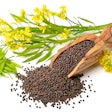
Higher doses of phytase may help eliminate anti-nutritional factors and promote growth and bone health in nursery pigs, according to new research from North Carolina State University.
Nursery pigs that received “super doses” of phytase — doses five- to tenfold higher than conventional inclusion levels — grew faster and developed stronger bones than those in the study that did not, according to a paper published last month in the Journal of Animal Science. Increased phytase supplementation also improved feed efficiency and apparent protein digestibility, and triggered changes in the gut microbiome. Analysis of data from the study put the phytase dose for ideal bone health in nursery pigs at 1,889 phytase units per kilogram of feed — nearly twice the 500-1,000 phytase units included in conventional diets, according to Sung Woo Kim, one of the study’s authors and a professor of nutrition in the Department of Animal Science at North Carolina State University.
Phytase super dosing has been trendy for some time now, according to the paper, but the study’s results suggest that there is something to the trend and that producers should consider increased phytase supplementation in nursery pigs, Kim said. The study did not observe any negative effects on the animals at dosages of up to 5,000 phytase units per kilogram of feed, so the main drawback of super dosing, Kim said, is probably the cost.
The lower, more conventional levels of phytase may result in a partial digestion of the phytic acid the enzyme is intended to break down, Kim said. Per the study, phytic acid can bind to key minerals and proteins, rendering them indigestible, so an increased dose of phytase may promote the complete digestion of phytic acid and prevent these antinutritional effects, leading to improved growth and bone health.
Nursery pigs in particular may benefit from increased phytase supplementation because weaning stress can impair the production of enzymes that influence nutrient digestibility, according to the study.














